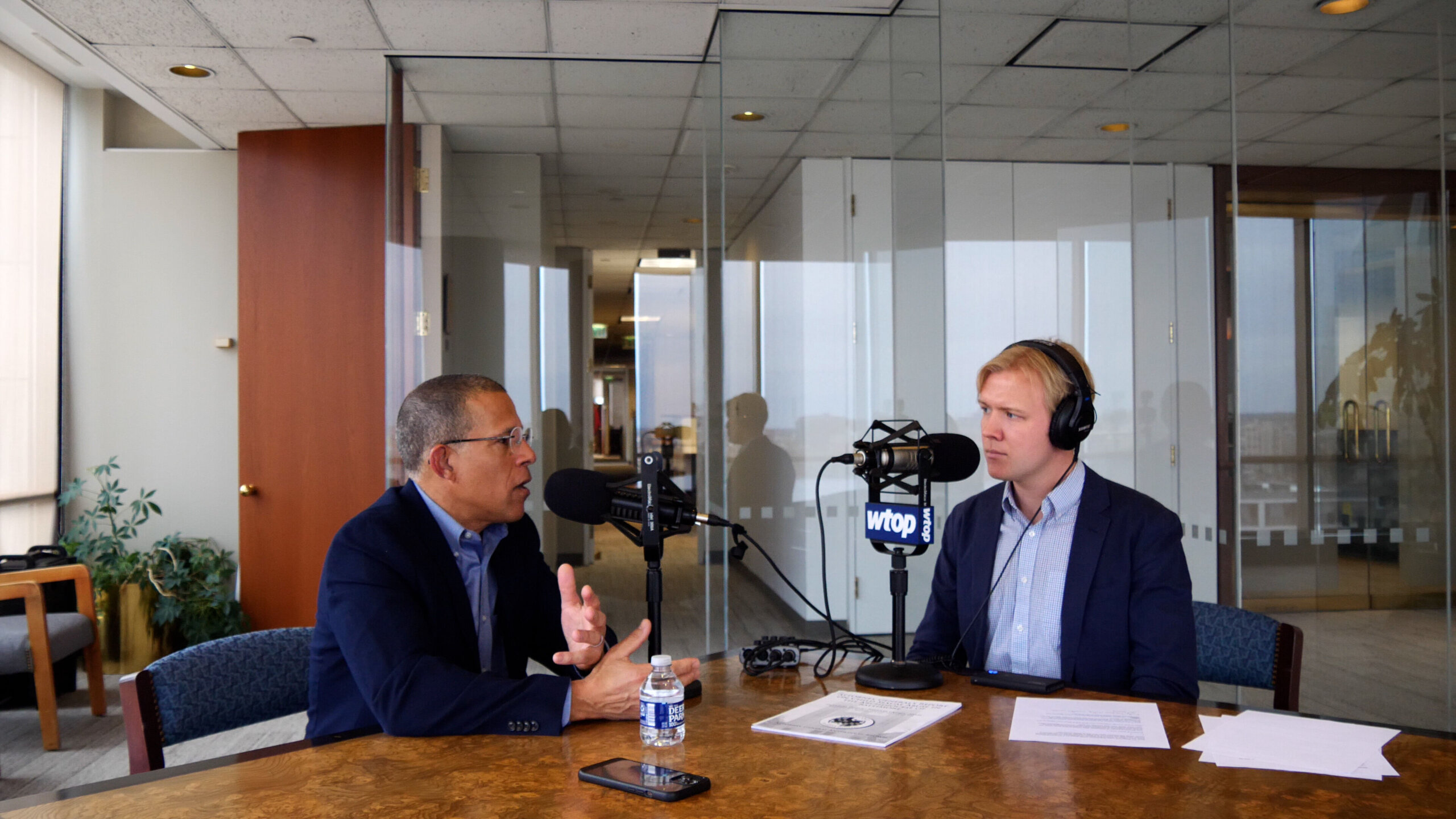
In a nearly 500 page report released last week, Maryland Attorney General Anthony Brown’s office documented more than 600 victims of sexual assault at the hands of priests, seminarians and deacons within the Catholic Archdiocese of Baltimore.
“It’s been one of the most difficult things that I’ve had to address in my 20-plus years of public service,” Brown told WTOP News.
Brown’s office released the report during Holy Week — considered the most sacred time within the Catholic calendar — and said this investigation only scratches the surface of what they describe as an 80-year scheme of abuse and cover up in the Archdiocese of Baltimore.
“The staggering pervasiveness of the abuse itself underscores the culpability of the Church hierarchy,” the report said. “The sheer number of abusers and victims, the depravity of the abusers’ conduct, and the frequency with which known abusers were given the opportunity to continue preying upon children are astonishing.”
In an exclusive interview with WTOP’s DMV Download podcast, Brown walked through the report’s findings, explained where current investigations stand, and talked about what options his office still has to hold abusers accountable.
‘Trust was abused in the Archdiocese of Baltimore’
Within the Catholic Church, a priest is not only the leader of his congregation. A priest is a spiritual guide. For example, during the sacrament of the Eucharist — where Catholics believe bread and wine are turned into the body and blood of Christ — children are taught that the priest, for moments, channels Jesus and is able to re-create this miracle or transubstantiation.
For Brown, the power of the priest and their relationship with their congregation is important.
“I happen to be Catholic,” he said. “People see in a priest, someone who they can trust: An adviser, sometimes a mentor, a coach, someone who is in a position of trust. And that trust was abused in the Archdiocese of Baltimore.”
The report documents hundreds of cases of abuse between the 1940s and the early 2000s. Maryland’s top prosecutor said no two cases are the same, but his office found consistent and repeated cycles of abuse within the Archdiocese of Baltimore.
“Some of them involve physical abuse, some of them literally torture, emotional and psychological abuse, sexual abuse, for sure,” Brown said. “Each one, though, was unique. But we do see common patterns, and the pattern is of a priest, or in the case of some cases, there was a coach who abused their power and authority that they had over some of the most vulnerable people you can imagine. And that’s children.”
‘They were ignored’
The report documents not only the more than 600 cases of sexual assault but also cover-up schemes within the Archdiocese of Baltimore that also extended to courtrooms and newsrooms.
“Even when these issues were brought to the authorities of local prosecutors, law enforcement, at least in one case, a judge and even a newspaper, they were ignored,” Brown said. “And we see no evidence in those in many cases where anything substantive or serious was done of that matter.”
He added that the report’s findings were hard to believe. But as the cases piled up, it became clear why the church made such an effort to cover up their abuse.
“It was an effort more to protect the reputation of the institution, the church, the Archdiocese than it was in protecting the children who were violated in such a depraved and sadistic way,” said Brown.
Brown also noted that the laws of the time also got in the way of accountability. Prior to 1976, rape in Maryland was defined as “the act of a man having unlawful carnal knowledge of a female over the age of 10 years by force without the consent and against the will of the victim.” Anything outside this narrow definition would be considered a misdemeanor — punishable by up to two years in jail. Further, other sex offenses could only be charged as assault or sodomy.
“Back then, some of it would not have been met that day’s definition of rape,” Brown said. “And as a result, those offenses were considered misdemeanors.”
And these old laws and definitions not only protected abusers in the past, but also today.
“That is what ties my hands as the attorney general in bringing indictments,” Brown said. “Because misdemeanors have a one year statute of limitations. Had they been considered felonies at the time, there’s no statute of limitations, and I would be able to not only investigate, but seek indictments and prosecute where the evidence would support a prosecution.”
‘I am committed to completing the investigation’
Despite these legal challenges and barriers to accountability, Brown said he still has a few ways to hold abusers accountable.
In the hours after the report’s release, the Maryland General Assembly passed a law that does away with Maryland’s statute of limitations for when civil lawsuits for child sexual abuse can be filed against institutions such as the Catholic Archdiocese of Baltimore. Gov. Wes Moore signed the bill into law Tuesday.
“My office is prepared to defend it,” Brown said. “That applies to civil actions taken by those who were abused by the priests and seminarians and deacons.”
Additionally, Brown said his office is still investigating multiple archdioceses in the D.C. region regarding the sexual abuse of children and attempts to cover up these cases. He confirmed subpoenas had been made.
“We’ve got an investigation in the Archdiocese of Washington, D.C., and the Diocese of Wilmington, Delaware,” Brown said. “We’ll see what we uncover, and whether or not there will be indictments coming out of that investigation or not. It’s too premature for me to say, we still don’t know.”
Brown added his office still wants to hear from any victims of abuse or anyone who witnessed abuse.
“If you’re a survivor, or a witness to any of these accounts, we’re encouraging people to come forward,” Brown said. “I just want the people, survivors and the public to know that I am committed to completing the investigations of the Archdiocese of Washington, D.C., and the Diocese of Wilmington, Delaware, in as expeditious and thorough manner as possible.”








